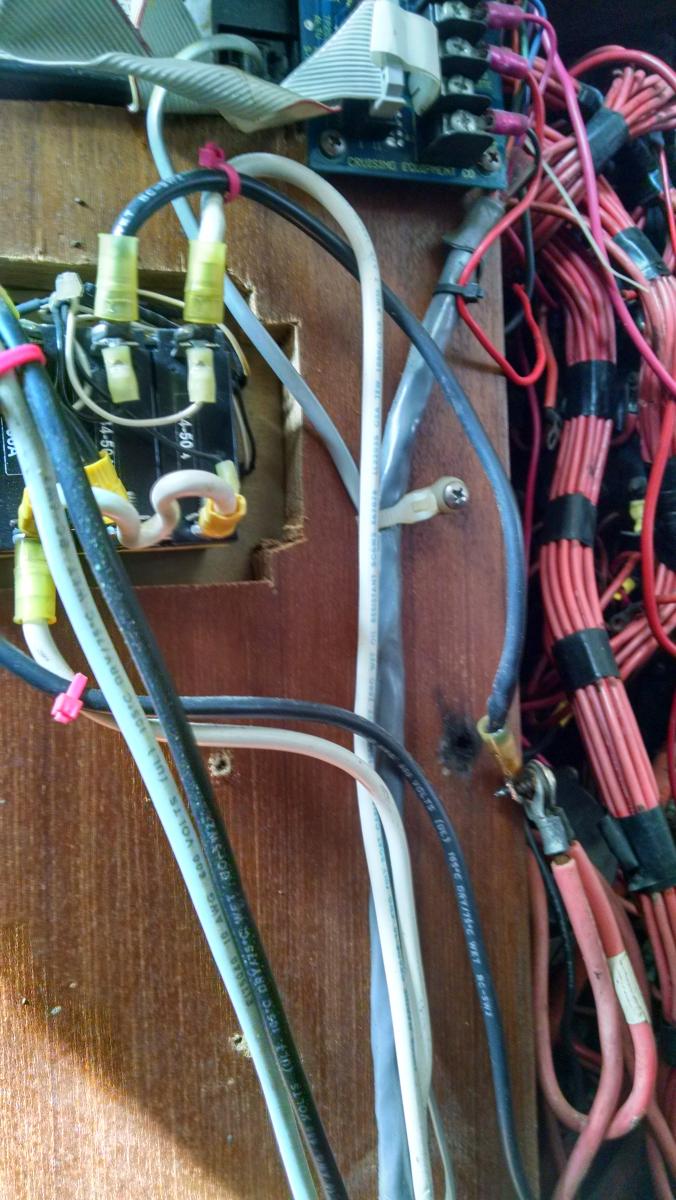what_barnacles
Guru
what the pic shows is the rear of the inverter/shore power breaker.
about midway down on the right is the connection he made to 2 - 120Vac hot shore power wires (red ones).
The connection is made with a small wood screw to the black wire that feeds the breaker. The 3 wires were then screwed into that charred spot on the back of the door.
He kept saying over and over, "you know you're buying this as is, right?"
:lol:

about midway down on the right is the connection he made to 2 - 120Vac hot shore power wires (red ones).
The connection is made with a small wood screw to the black wire that feeds the breaker. The 3 wires were then screwed into that charred spot on the back of the door.
He kept saying over and over, "you know you're buying this as is, right?"
:lol:


